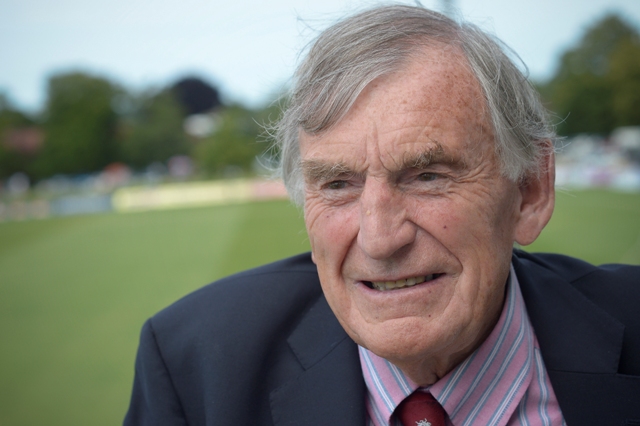On television this morning, the local BBC news showed a press conference with Jason Gillespie, newly installed as coach at Sussex. Even though there was a world wide storm raging about the doubtful actions of his fellow Australians Smith, Warner, Bancroft and a piece of sandpaper in South Africa, all Gillespie wanted to talk about was Sussex cricket. And what the clip shown on television concentrated on was his views on the heritage of Sussex cricket.
He seemed to believe that Sussex has been playing county cricket longer than any other county – a claim that might be disputed in Kent as well as in Hampshire and elsewhere – but he emphasised the importance of the heritage of the club in building a successful team for today. He managed to avoid all the clichés about robust responses in an iconic environment going forward, and showed that he valued the opportunity to be involved in a club with an even longer history than Yorkshire. He is an exceptional coach, as we found out during the first half of 2017, and we wish him success at Sussex – not too much, of course. We’d be quite happy if Sussex went up as runners-up to Kent at the end of this coming season.
But Gillespie is definitely right to put the heritage of any cricket club at the centre of its present and future plans. A club forgets its past at its peril. We do not want to live in the past, remembering the great elevens of the past to the exclusion of today (and, incidentally, it is forty years this year since Kent performed the double of County Championship and B&H Cup), but remembering the achievements of players of the past helps set the bar for the players of today.
Speaking of the players of the past, at Kent we invite past players back to Canterbury for their own day, a day when they can remember the past and also take a look at what their successors are doing today. For many years this day has been run by Derek Ufton, who will be celebrating his 90th birthday a little later this year. Each summer, county cricketers come back to St. Lawrence to meet old friends, drink a few beers and exaggerate their past achievements with those who know the truth. It makes for a very enjoyable day. This year it will be the first day of the Kent v Leicestershire county championship match, Sunday 22 July. If you are there, you will probably see many faces you think you recognise, even if they are a bit greyer, a bit thinner on top and thicker round the middle, and a bit less likely to pass any bleep tests the coaches put them up against. Stop and have a chat, because everybody wants to be reminded of their glory days.

Derek Ufton
Most counties do the same sort of thing during the season, and players come back from all over the world to check out their old stamping grounds. I was asked by a chap from Somerset whether Kent have a past players’ day, and I said yes, and it’s organised by Derek Ufton.
“Does Alan Knott ever come?”
“Sometimes,” I replied. “He lives in Cyprus so his visits are comparatively rare.”
“So it’s more Ufton than Knott.” Boom! Boom! It’s the way he tells them.

Alan Knott
Remembering the past can be done in many ways, and it is good for the soul. A recent initiative called the Sporting Memories Foundation (http://www.sportingmemoriesnetwork.com) is encouraging people to tackle dementia, depression and loneliness by recalling their sporting memories of long ago. There are well over a hundred groups around the country who meet to reminisce about past sporting triumphs and disasters, and to socialise over a cup of tea or something stronger. The sessions achieve two aims: firstly, they help people who may be losing their awareness of the present through dementia to focus their memories on well-remembered events of the past; and secondly, to provide a support group of like-minded people to help combat loneliness or depression, which are significant problems among the elderly.
These sessions can also serve a further purpose for lovers of sports history. When recorded, these memories become part of a historical archive which can be preserved for future generations. They can learn, from the viewpoint both of the sportsman or woman and of the sports fan, what impact a particular match might have had. How memorable was that innings, or that leaping catch in the gully? How significant was that opening spell from the Nackington Road End in nineteen hundred and whenever? It will all be there for us to relive what the players and spectators thought at the time.
That’s what the Heritage Trust is planning to do over the coming months and years. Quite apart from the proven great social benefit of these Sporting Memories sessions, we intend to build up an audio archive of sporting memories from players, spectators and administrators alike, to create a first hand account of events that might otherwise be lost or overlooked.
All we really need is a few volunteers with a bit of time on their hands who would like to get involved in the organising and recording of these sessions. If anybody is interested, please get in touch. It is valuable and enjoyable work.
0 Comments